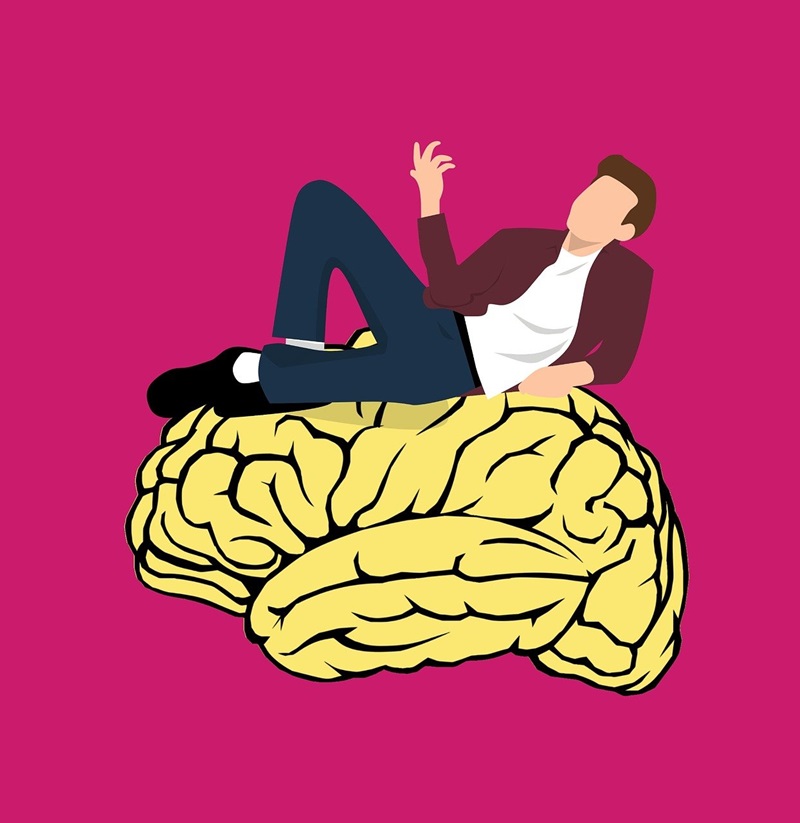8 Reasons Why Self-Image Is Important
In this post, I will discuss several reasons why self-image is important so that you can get motivated to learn more about what it means and how it shapes your personality and life. I will also talk about how you can foster a healthy self-image, which can benefit both you and the people around you.
It is very common for people to hear about the importance of working on their self-esteem, confidence, and maintaining peace of mind. However, rarely do people talk about working on one’s self-image, which is, in fact, at the root of all these other aspects. Even though only a few people truly understand what self-image is, the bottom line is this: whether one is aware of how self-image works or not, it is always at play. It continually changes with one’s experiences and social factors, and much of it remains the same, originating from childhood—unless efforts are made to change it.
A successful person, however success is defined, is good at something because their psychology allows them to flourish in that particular area. The same is true for someone whose life feels miserable—it’s their self-image and mindset that influence their experience. I can’t emphasize enough how important it is to work on your self-image, but I’ll do my best to highlight its significance with these points. This will also give you a clearer picture of what this is all about:-
1 Your Opinion About Yourself
We all have opinions about everything in our lives, from what we watch on Netflix to the types of people we hang out with. We make these choices based on how they relate to us and form opinions around them. The more something matters to us, the more opinionated we become about it. This holds true for what we like, what we don’t like, and even what we don’t care about.
We are so attached to our views that it often takes a significant amount of external effort if someone badly wants to shift our perspective, even for a moment. What do you think it would take for you to change your opinion about yourself?
Yes, our self-image is our opinion about ourselves. It is how we view ourselves, even without realizing that we have shaped an idea of who we are and what we are deep inside. You may have picked up this opinion unconsciously, as a result of several factors, but it ultimately defines the idea of ‘You’ in your mind. And as we all know, hypocrisy can fool the world, but not oneself.
2 Self-Talks
They may say a person is losing their mind when they talk to themselves, but did you know we all do it all the time? With a little awareness, you’ll notice that you’re constantly having an inner dialogue with yourself. This pattern of thinking is commonly referred to as self-talk.
Self-talk can be a positive and empowering inner voice that supports and motivates you in whatever you’re doing or planning to do. Alternatively, it can be a critical and demotivating voice that not only drains your energy but also disrupts your ability to complete important tasks.
What determines the kind of dialogue you mostly have with yourself? Yes, it’s your self-image! While it’s not always realistic or helpful to have positive thoughts about everything you plan to do, the nature of your inner dialogue is a clear reflection of your self-image. If you have a healthy self-image, your inner conversations when facing important tasks or major decisions will likely be supportive and encouraging. On the other hand, a negative self-image can create inner dialogues that hold you back and prevent you from taking impactful actions.
3 The Company You Keep
Being an extrovert is great—being able to talk to people and socialize is a sign of good emotional health. But do you overdo it? Do you always feel the need to avoid solitude? Can you spend days alone without craving outside company? If the answer is no, it might be because your self-image isn’t serving you well.
We all dislike bad company. Nobody wants to be around people who are constantly negative or have nothing uplifting to share. Good company can lift us up on tough days, while the wrong company can ruin even our best moments. Now, imagine having a friend who always focuses on “what’s wrong” in every situation—and they’re with you all the time.
That’s what living with a negative self-image feels like. Some people constantly keep their minds occupied because they can’t bear to sit alone with their thoughts. They’re exhausted by the critical and demotivating nature of their self-talk, as we discussed earlier. In contrast, those with a healthy and supportive self-image often embrace solitude. They take breaks from tasks and enjoy moments of doing nothing because they understand that some of life’s best ideas and insights come during those quiet times.
4 Attracting People and Situations
I don’t want to delve into the law of attraction in this post because that’s an entirely separate discussion. However, I want to emphasize that our inner state is reflected in our outer world, and our self-image plays a significant role in shaping it.
The self-image we hold determines the patterns our life follows. The kinds of people we attract into our lives and the situations we encounter are deeply connected to the opinions we hold about ourselves at a subconscious level.
For example, I have a friend who always has a story to share about his encounters with corrupt people—stories that are invariably about how dishonest or unethical they are. What’s astonishing is that he constantly talks about recent incidents, which makes me wonder: why do all the corrupt people in the world seem to cross his path so often? How does he always find himself in such situations?
The truth is, that friend of mine has ‘the world is corrupt’ ingrained in his self-image. To validate this belief, his mind subconsciously attracts conditions that align with the idea he holds so dearly. That’s how it works—if your self-image tells you that you have a good sense of humor, you’ll find yourself in situations where you can crack jokes and make people laugh, and you’ll also attract those who appreciate your humor. Of course, this is just a small example. The potential of this concept is as vast as your imagination, especially when it comes to what you want in life and how your life currently unfolds.
5 – Decisions
Would you believe me if I said that many of us—perhaps even most of us—have deliberately made wrong choices at some point? Think about not stopping a party at the right time, even when you know it’s getting too late. Or buying something cheap while compromising on quality. It could be indulging in prolonged cheat days during a diet or making any decision where you know you’ll regret it later but still go ahead anyway.
You see, sometimes, we are our own worst enemies. It’s not just about those small, obviously poor choices; it’s the deeper, subconscious decisions we make because our self-image doesn’t align with the alternative. Scientifically speaking, we all often make choices without much conscious involvement because our subconscious mind based on our experiences and various other factors affects the decisions that we make in our lives.
If your self-image tells you that a 9-5 job is the most secure option in the world, you’ll likely make all the wrong choices if you decide to become a business owner. The decisions you make will inevitably reinforce the belief that choosing to be a businessman was a mistake from the start. Similarly, if your self-image holds the belief that marriages are destined to fail, you’ll unconsciously create situations that lead to a doomed relationship.
Imagine your self-image as a blueprint that shapes your life. When things start to drift from the plan, a sort of correction mechanism kicks in, guiding you to make choices that steer everything back on track as it was meant to be. It’s not exactly concrete, but it definitely works in that way. It might sound a little scary, but what if you could alter this blueprint to suit your desires?
6 – Self-Esteem and Self-Confidence
When discussing how various factors affect our personality, it’s impossible to overlook these two twin sisters—self-esteem and self-confidence. They are the first to be directly impacted by the thoughts we have and our overall outlook on the world, life, and ourselves.
Naturally, a person with a healthy self-image will have strong self-esteem. They won’t seek validation from the outside world for who they are or what they do. Such a person will be at peace with their life as it is, yet they will also strive to improve it in ways that resonate with them—not based on how others or the world expect them to.
On the other hand, a weak self-image takes a toll on an individual’s self-esteem, leading them to constantly seek recognition and feel unworthy, regardless of their achievements.
Similarly, when a person with a self-image that aligns with their vision sets out to achieve something, they draw empowerment from within, enabling them to take the necessary actions to reach their goals. Conversely, if someone’s self-image is unfavorable, it undermines their self-confidence, making them feel incapable of performing the tasks needed to reach their desired destination.
7 – Influence
What happens in our inner world reflects in our outer world. I often emphasize this in my blog posts. In the context of what we have been discussing, an unhealthy self-image can make a person a negative influence on others. The demeaning self-talk they engage in also shapes how they treat those around them. People are often negatively impacted by the presence of someone carrying insecurities and unresolved inner issues. If a person’s self-image is not working in their favor, it will inevitably have a detrimental effect on those they are connected to, no matter how kind they try to be.
Nevertheless, those with a positive self-image radiate empowering energy to others through their mere presence. The way they carry themselves clearly shows their strong self-belief, which in turn inspires and uplifts those around them.
8 – Emotional and Mental Health
It’s probably the most important point, and that’s why I’ve saved it for last. A self-image that doesn’t favor a person has all these negative effects on their life, and the opposite is true for a positive self-image. Ultimately, it all impacts one’s inner peace. Negative self-talk, low self-esteem, and similar issues stem from an unhealthy self-image, as we’ve discussed, but they also take a significant toll on mental health.
Emotional well-being should always be a top priority because only a healthy mind can lead to a fulfilling life. The stress caused by constant negative chatter and thoughts of failure can profoundly disrupt one’s life.
When you have a healthy self-image, you’ll also be emotionally resilient. It’s unrealistic to expect success in everything we set out to do right away—challenges are an inevitable part of the journey, and unfavorable situations cannot always be avoided. Life isn’t always smooth sailing, but how we react to these situations is what truly matters.
Now You Have Enough Reasons…
I believe these eight points are more than enough to help anyone understand the importance of self-image. So, the next question is—what can I do to build a healthy self-image?
The answer is that you need to work on your thoughts at the root level. The beliefs embedded in our subconscious minds must be altered for this transformation to take place. All legit personal development programs, whether explicitly stated or not, aim to change a person’s self-image. You can also achieve this through mindfulness meditation, empowering affirmations, visualization, and more. I’ve written about these techniques here on my blog
To start, I recommend a simple exercise I often use called ‘the Mirror Method.’ Additionally, reading personal development books can help, as repeated empowering thoughts gradually shape your beliefs.
Hope you enjoyed this post! I’d love to hear your thoughts, so feel free to drop a comment below, it really motivates me and helps me improve the blog. If I missed anything important, let me know in the comments!
You can also reach out via the contact page, I’m more than happy to help with any questions or issues.
And if you found this post helpful, don’t forget to share it with your friends on social media!
